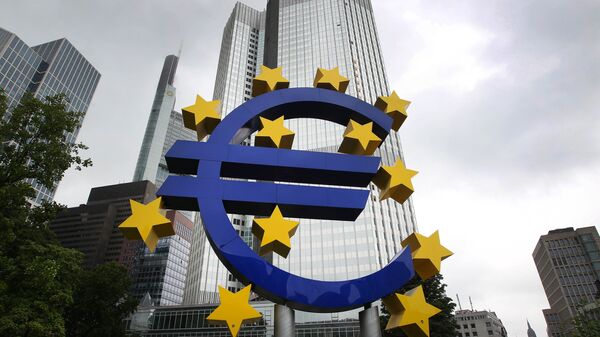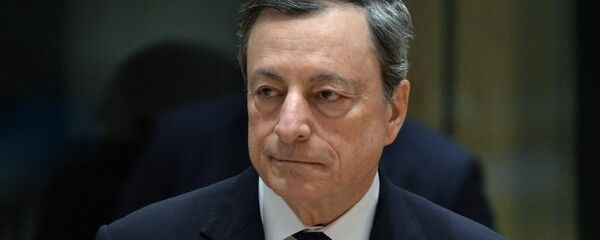Kristian Rouz — A top European Central Bank (ECB) official has expressed his commitment to keeping interest rates low, although the ECB will likely continue to gradually wrap up its unconventional monetary stimulus. This comes as several ECB board members have recently expressed concern about the prospect of a possible slowdown or even a recession in the single-currency bloc, due to structural problems at home and international headwinds.
Bank of France Governor and member of ECB's Governing Council Francois Villeroy de Galhau said Friday that the ECB would likely postpone rate hikes for an indefinite period of time.
Villeroy added the ECB could offer additional loans to commercial banks, although his comments also suggest the ECB policy of gradual reductions of its 2.5-trillion euro portfolio will continue.
"We remain committed to maintaining very low interest rates, which is good for the economy," Villeroy said in an interview at the World Economic Forum in Davos, Switzerland.
READ MORE: ECB Begins Board Reshuffle Amid Worrying Slow Growth Forecasts — Scholars
However, the official added that "progressively, we (the ECB) are withdrawing monetary stimulus… but it is very progressive and depends on improvement in the economy. We'll take the time it takes," Villeroy said.
Amid the signs of economic strength in 2017-2018, the ECB was contemplating gradual sales of its bond holdings, along with rate hikes — but these plans are now in jeopardy.
In a recent report, the ECB said the Eurozone could be facing weaker growth over the coming several quarters due to the risks posed by Brexit, the US-China trade standoff, and the EU's own trade disagreements with the US.
For his part, ECB President Mario Draghi said the Eurozone is facing significant challenges to economic growth, while also suggesting that parts of the unconventional monetary policies could remain in place.
"We were unanimous about acknowledging the weaker momentum and changing the balance of risk for growth," Draghi said at a ECB policy meeting this past Thursday.
READ MORE: Eurogroup Concerned About Slow Public Debt Reduction in Some Eurozone Countries
Signs of a slowdown have emerged in the European powerhouse economy of Germany over the past several weeks, where recent reports suggests manufacturing sector activity could have dropped at the very end of 2018.
Until very recently, it had been unclear whether the ECB would continue buying bonds and if it would keep interest rates steady to support its slowing economy; Villeroy appears to have clarified the regulator's stance.
"We could consider the provision liquidity and credit to banks; it's part of our toolbox," Villeroy said.
Officials believe that by expanding parts of the ECB stimulus, they could support economic growth at its current pace and avoid a possible recession. While the ECB kept its broader policies unchanged this month, Draghi warned that the regulator would likely interfere with new cash injections should the incoming data disappoint previous expectations.
The official, however, rejected the allegations that the ECB seeks to support the Italian banking system in particular.
The ECB's accommodative policies "cannot be designed for specific banks or jurisdictions", Villeroy stressed.
These remarks suggest the ECB is still not ready to hike interest rates for the first time in a decade this year.
However, as its gradual portfolio reductions advance, a possible depreciation in commercial bonds could push borrowing costs up, adding pressure on the ECB to normalise its policy — despite the risk of slower GDP expansion across the Eurozone.



